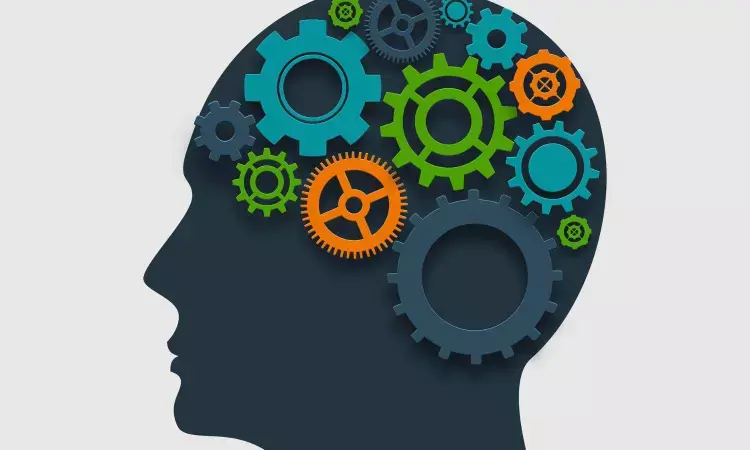- Home
- Medical news & Guidelines
- Anesthesiology
- Cardiology and CTVS
- Critical Care
- Dentistry
- Dermatology
- Diabetes and Endocrinology
- ENT
- Gastroenterology
- Medicine
- Nephrology
- Neurology
- Obstretics-Gynaecology
- Oncology
- Ophthalmology
- Orthopaedics
- Pediatrics-Neonatology
- Psychiatry
- Pulmonology
- Radiology
- Surgery
- Urology
- Laboratory Medicine
- Diet
- Nursing
- Paramedical
- Physiotherapy
- Health news
- Fact Check
- Bone Health Fact Check
- Brain Health Fact Check
- Cancer Related Fact Check
- Child Care Fact Check
- Dental and oral health fact check
- Diabetes and metabolic health fact check
- Diet and Nutrition Fact Check
- Eye and ENT Care Fact Check
- Fitness fact check
- Gut health fact check
- Heart health fact check
- Kidney health fact check
- Medical education fact check
- Men's health fact check
- Respiratory fact check
- Skin and hair care fact check
- Vaccine and Immunization fact check
- Women's health fact check
- AYUSH
- State News
- Andaman and Nicobar Islands
- Andhra Pradesh
- Arunachal Pradesh
- Assam
- Bihar
- Chandigarh
- Chattisgarh
- Dadra and Nagar Haveli
- Daman and Diu
- Delhi
- Goa
- Gujarat
- Haryana
- Himachal Pradesh
- Jammu & Kashmir
- Jharkhand
- Karnataka
- Kerala
- Ladakh
- Lakshadweep
- Madhya Pradesh
- Maharashtra
- Manipur
- Meghalaya
- Mizoram
- Nagaland
- Odisha
- Puducherry
- Punjab
- Rajasthan
- Sikkim
- Tamil Nadu
- Telangana
- Tripura
- Uttar Pradesh
- Uttrakhand
- West Bengal
- Medical Education
- Industry
IASIS microcurrent neurofeedback may reduce symptoms of mental health disorder

A recent study explores the efficacy of microcurrent neurofeedback in alleviating symptoms of depression, anxiety and post-traumatic stress disorder (PTSD). The findings were published in the Journal of the American Association of Nurse Practitioners.
20 adult participants underwent sessions of IASIS microcurrent neurofeedback (I-MCN), an updated cutting-edge neurotechnology, over a span of 10 weeks. The results were gathered through meticulous assessments at baseline, 5 weeks and 10 weeks that showed significant improvements in depression, anxiety, PTSD risk and overall quality of life.
The simplicity and effectiveness of the intervention offer a glimmer of hope for individuals burdened by treatment-resistant conditions. Unlike traditional therapies, which often carry cumbersome challenges and varying degrees of efficacy, this innovative approach demonstrates promising results in a relatively short timeframe. This study marks a significant milestone in mental health treatment after the observation of tangible improvements in the well-being of participants that suggests microcurrent neurofeedback to be a potential therapy for these debilitating conditions.
The implications of these findings extend far beyond the spaces of the research laboratory. Advanced practice nurses and healthcare professionals now have an evidence-based tool at their disposal to reduce the suffering of patients who are battling mental health disorders. Further incorporation of microcurrent neurofeedback into the clinical practice can potentially offer better quality of life to the individuals in desperate need of relief.
However, while the outcomes are promising, the study team caution that further investigation is warranted. The randomized controlled trials and studies involve diverse populations which are essential to validate these initial findings and ensure the broader applicability of the microcurrent neurofeedback.
Source:
Duke, G., Yotter, C. N., Sharifian, B., Duke, G., & Petersen, S. (2023). The effectiveness of microcurrent neurofeedback on depression, anxiety, post-traumatic stress disorder, and quality of life. In Journal of the American Association of Nurse Practitioners (Vol. 36, Issue 2, pp. 100–109). Ovid Technologies (Wolters Kluwer Health). https://doi.org/10.1097/jxx.0000000000000945
Neuroscience Masters graduate
Jacinthlyn Sylvia, a Neuroscience Master's graduate from Chennai has worked extensively in deciphering the neurobiology of cognition and motor control in aging. She also has spread-out exposure to Neurosurgery from her Bachelor’s. She is currently involved in active Neuro-Oncology research. She is an upcoming neuroscientist with a fiery passion for writing. Her news cover at Medical Dialogues feature recent discoveries and updates from the healthcare and biomedical research fields. She can be reached at editorial@medicaldialogues.in
Dr Kamal Kant Kohli-MBBS, DTCD- a chest specialist with more than 30 years of practice and a flair for writing clinical articles, Dr Kamal Kant Kohli joined Medical Dialogues as a Chief Editor of Medical News. Besides writing articles, as an editor, he proofreads and verifies all the medical content published on Medical Dialogues including those coming from journals, studies,medical conferences,guidelines etc. Email: drkohli@medicaldialogues.in. Contact no. 011-43720751


